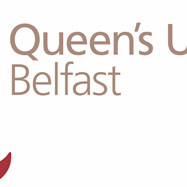Sustainability research – Place and Space
13 December 2021
The challenge of sustainability will have an effect on our communities, our villages, towns and cities. See how research at our leading universities is transforming our landscape and built environment to allows the health of people and planet to flourish.
How universities are addressing the challenge of developing more sustainable places and spaces
Queen Mary University of London – healthy air for Londoners
Air pollution is responsible for around 40,000 premature adult deaths in the UK each year long-term conditions, such as dementia, heart disease and cancer. QMUL researchers were able to demonstrate some of the harm to lungs that air pollution is causing in London and influenced the introduction of the London Ultra Low Emission Zone (ULEZ).
University of Bristol – reducing the impact of research laboratories
The University of Bristol has become the first university in the world to achieve institutional Green Labs Certification. Each of their 990 laboratories have gained certification through which staff, students and the wider STEM community considered the direct impact of research activities themselves.
University of Exeter – using AI to assess climate risk
The Joint Centre for Excellence in Environmental Intelligence (JCEEI) utilises AI to address climate and biodiversity change by interrogating multiple sources of data. It is working with a city council on how to make buildings safe during heatwaves, and collaborating with The Alan Turing Institute, energy futures lab at Imperial College London and the Universities of Edinburgh and Warwick on decision-making approaches for energy security and net zero.
University of Oxford – modelling risks to infrastructure
The University of Oxford’s Environmental Change Institute has developed modelling tools to help decision makers identify risks from climate-related infrastructure failure and build long-term resilience. Research teams have created tools and methodologies to map infrastructure system interconnections and help decision makers manage the risk of failure. The approach has also been adopted internationally and by UK Government bodies.
-
Hamir Patel
hamir.patel@russellgroup.ac.uk
020 3816 1316
-
Stephanie Smith
020 3816 1310
 X
X


